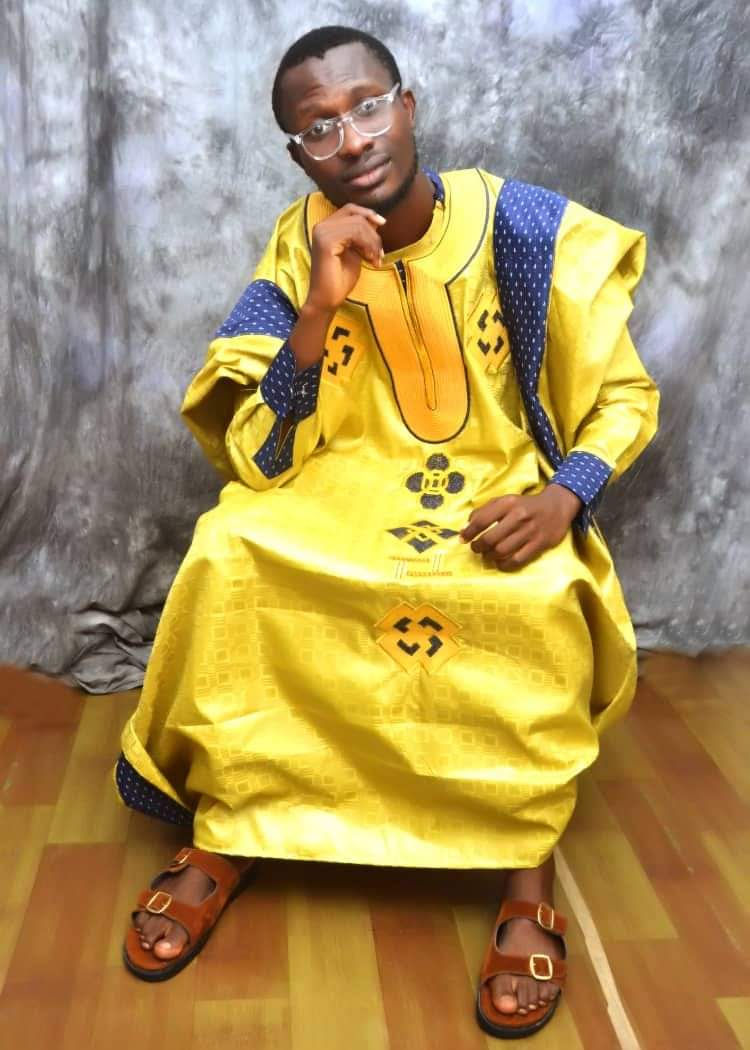The Visit of Ambassador Samuel Egunjobi Adesegun to the Lagos State Governor on SDG's & Youth
- egunjobi samuel

- Sep 23, 2021
- 3 min read
Brief History and Facts about Lagos
Lagos is the largest city and former capital of Nigeria and the largest megacity on the African continent in terms of population.
Modern-day Lagos is now a state in South-Western Nigeria. It is bounded on the west by the Republic of Benin, to the north and east by Ogun State with the Atlantic Ocean providing a coastline on the south. Lagos is made up of a collection of islands surrounded by creeks that fringe the mouth of the Lagos lagoon on the southwest.
Lagos means "lakes" in Portuguese, the language of the first European immigrants known to visit the settlement, then already inhabited by the Awori and Bini and known to them as Oko.From the crowning of Ado as its first Oba, Lagos (then called Eko) served as a major center for slave-trade, from which then Oba of Benin Ado and all of his successors for over two centuries supported - until 1841, when Oba Akitoye ascended to the throne of Lagos and attempted to ban slave-trading.
Local merchants strongly opposed the intended move, and deposed and exiled the king, and installed Akitoye's brother Kosoko as Oba.
At exile in Europe, Akitoye met with British authorities, who had banned slave-trading in 1807, and who therefore decided to support the deposed Oba to regain his throne. With the success of the British intervention, in 1851 Akitoye was reinstalled as Oba of Lagos. In practical terms, however, British influence over the kingdom had become absolute, and ten years later, in 1861, Lagos was formally annexed as a British colony.
Lagos maintained its status as capital when Nigeria obtained its independence from Britain in 1960. Lagos was therefore the capital city of Nigeria from 1914 until 1991, when it was replaced as Federal Capital Territory by planned city of Abuja, built specifically for such purpose.
The name EKO was given to it by its first king, Oba Ado, Eko was the land area now known as Lagos Island where the king's palace was built.
The Challenges of Covid-19 Pandemic & End Sars to the Government of Lagos and Inhabitants
With the Outbreak of the Covid-19 Pandemic affecting the global community and Governance at the local, state, national and international level. Followed by the End Sars protest which almost turned the mega City into anarchical state of hoodlums.
The administration of his Excellency, Mr Babajide Olusola Sanwoolu has recorded significant and inestimable achievements despite the set back and challenges.
The Governor has proven to be a God sent to the people of Lagos with his THEMES AGENDA which highlighted the major problems Lagosians are facing with solutions to those problems.
T.H.E.M.E.https://youtu.be/aRp6mt_O8jQS which is the acronym for Traffic Management and Transportation, Health and Enviroment, Education and Technology, Making Lagos a 21st Century Economy, Entertainment and Tourism and Governance and Security has become the marking scheme to access service delivery on the part of government and the fulfillment of its electoral promises.
The acronym, THEMES, captures the whole essence of the expectations of our teeming populace on the delivery of the proverbial dividend of democracy by the government they wholeheartedly entrusted with their mandate, secured future and general well-being.
What are the Sustainable Development Goals?
The Sustainable Development Goals (SDGs), also known as the Global Goals, were adopted by the United Nations in 2015 as a universal call to action to end poverty, protect the planet, and ensure that by 2030 all people enjoy peace and prosperity.
The 17 SDGs are integrated—they recognize that action in one area will affect outcomes in others, and that development must balance social, economic and environmental sustainability.
The SDGs are designed to end poverty, hunger, AIDS, and discrimination against women and girls. The creativity, knowhow, technology and financial resources from all of society is necessary to achieve the SDGs in every context.
1- No Poverty
2- Zero Hunger
3- Good health and well-being
4- Quality education
5- Gender equality
6- Clean water and sanitation
7- Affordable and Clean energy
8- Decent work and Economic growth
9- Industry, Innovations and infrastructure
10- Reduced inequalities
11- Sustainable cities and communities
12- responsible consumption and production
13- Climate action
14- Life below Water
15- Life on Land
16- Peace, justice and Strong institutions
17- Partnership for the goals.
The Visit of Prince Adesegun Samuel Egunjobi to the State Governor and office of the Lagos global and Sustainable Development Goals (SDGs) is to reinstate the commitment to the Youth and women inclusion in governance, synergy between the development inverter model" Rebuild Afrika'' and the T.H.E.M.E.S AGENDA of the state government.
The Lagos SDGs and Foreign Direct Investment (FDI) has recorded a tremendous improvement since the appointment of the renowned Woman of substance and driver of investment into the megacity, Mrs Solape Hammond , The Special Adviser to the Lagos State government on Sustainable Development Goals and Investment.







Comments